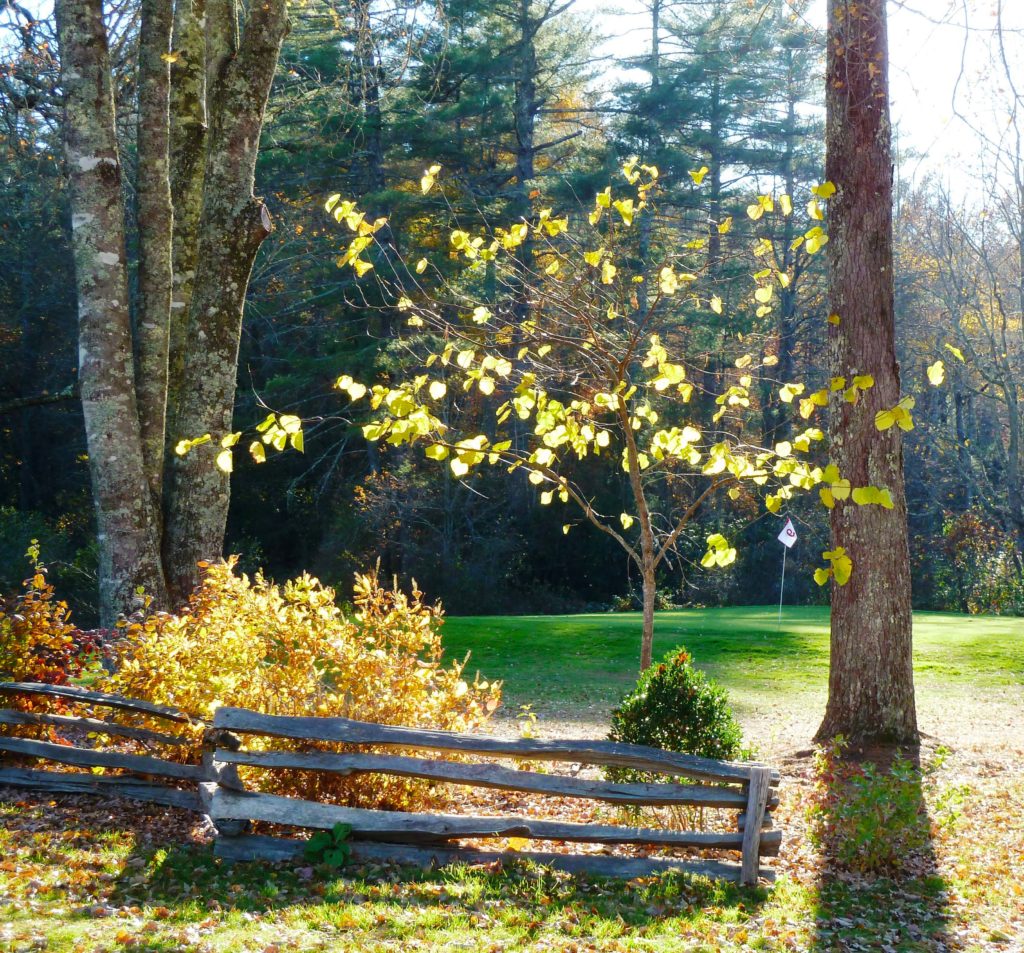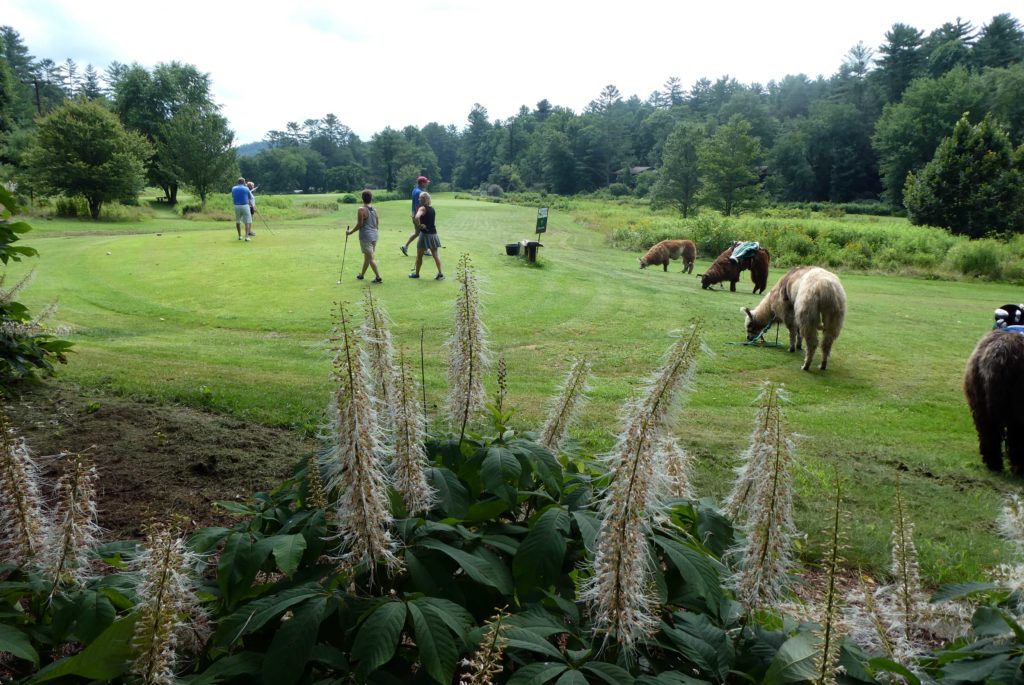Sherwood Forest Golf Club Achieves Audubon Cooperative Sanctuary Certification
Located at the entrance of the Pisgah National Forest, lies Brevard, North Carolina. While Brevard is famous for its waterfalls, hiking and other outdoor adventures, Sherwood Forest Golf Club should not be overlooked. Sherwood Forest Golf Club is one of Audubon International’s most recent ACSP Certified golf courses and it could very well be one of the most unique and inspiring courses in the ACSP program.
While golf courses often receive backlash for having poor environmental footprints, Audubon International’s Cooperative Sanctuary Program is changing that stereotypical perception by verifying environmental management on golf courses in six focal areas: environmental planning, water conservation, water quality, wildlife and habitat management, chemical use and safety, and outreach and education. Sherwood Forest achieved certification in all six areas of ACSP certification and passed their in-person site visit just last month.
Wildlife & Habitat Enhancement, Water Conservation
Sherwood Forest is a public 18-hole executive course situated within500 acres of protected greenspace. As a result of the restrictive covenants and conservation easements in place, there can be no construction or development in a riparian area along the Little River – protecting water quality while making Sherwood Forest a desirable location for an abundance of wildlife.
While the walks from tee to green may only be 150 yards you will be sure to come across many species of flora and fauna including black bears, river otters, the infamous white squirrel, and North America’s only species of giant salamander, the Hellbender. Sherwood Forest continues to expand their species diversity by enlarging low maintenance areas, installing nesting boxes, planting pollinator habitat and completing ecological restoration projects on site.
But their efforts don’t stop there…the course itself is extremely sustainable and is only utilizing 4 acres of irrigation. This is much less than the average 80 irrigated acres on a typical 18-hole golf course as reported by Gregory T. Lyman, Golf Course Superintendents Association of America (2012). To continue their water conservation efforts, Sherwood Forest focuses on irrigating only their greens and tees.
“The Sherwood Forest Golf Course embodies our community’s commitment to enjoying and protecting the natural environment of this mountain ecosystem. We strive to live in harmony with our natural surroundings by maintaining a sustainable balance between nature and the human presence. Because the course is located at the headwaters of the Little River, protecting water quality is central to the way the course is managed. We irrigate with rainwater, use chemicals sparingly, and dispose of waste safely,” explains Carolyn Graham, Co-Chair Sherwood Forest Golf Committee.
Outreach & Education
There is evidence everywhere that Sherwood Forest’s Outreach and Education initiatives are in a class of their own and it all begins at the club’s Robin Hood Center (RHC), which was designed and constructed to host seminars, events and meetings where community members and staff meet regularly to discuss goals, areas of concern and future sustainability projects. In addition to the RHC, Sherwood Forest’s Outreach and Education initiatives include participating in environmental stewardship programs, such as Audubon International’s Monarchs In The Rough and Green Area’s macro-invertebrate study, collaborating with a local Native Plants Committee, and monitoring the property’s nesting boxes.
For several years now, the golf committee and community at Sherwood Forest have looked for ways to incentivize the next generation of golfers to become involved in the game and their environmental efforts. One initiative, led by club Superintendent Brian Lautenschlager, is offering free lessons and green fees to youth under the age of seventeen.
If that was not already enough incentive, Sherwood Forest also offers llama caddies. While llamas may not assist in reading putts or tallying your score, this creative option works particularly well carrying clubs, in lieu of using a golf cart.
The more one explores the experiences at Sherwood Forest, the sooner you’ll soon realize how special this place truly is. Like the legendary Robin Hood, who robbed from the rich and gave to the poor, Sherwood Forest Golf Club is a perfect example of how golf courses can give back to nature and the community.
“Golfers of all ages play here to enjoy the changing landscape in four seasons. Affiliation with Audubon International will help us showcase a golf course that not only offers an enjoyable experience for golfers, but also provides habitat for birds, butterflies and other wildlife,” commented Terril Nell, former Golf Committee Chair.
To learn more about how your local golf course can gain recognition for your environmental efforts and learn how to expand your initiatives through Audubon International’s numerous environmental certifications, visit www.auduboninternational.org.
Audubon International, an environmentally focused non-profit organization, offers members numerous certifications and conservation initiatives to protect the areas where we live, work, and play. Their certifications are designed to increase environmental awareness, encourage sustainable environmental efforts, and educate both their members and their communities.




